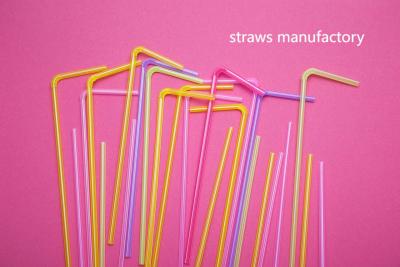PP Straws for Versatile Drinking Needs
-
Posted by sean zhang Filed in Other #Soton Straws #PP straws #drinking straw material #polypropylene straws #straw applications 566 views
In today’s world of fast-paced convenience and increasing environmental awareness, the type of straw used in daily life has become more than a simple preference—it’s a matter of sustainability and performance. Among the various options, PP Straws stand out as a popular choice due to their balance of durability, safety, and affordability. As a key supplier in this space, Soton Straws continues to innovate in both design and production quality.
Polypropylene (PP) is a thermoplastic polymer widely used in food packaging and consumer goods. It is highly regarded for its resistance to chemicals, low moisture absorption, and overall strength. These attributes make PP Straws ideal for various environments, from cold drinks served in cafes to high-temperature beverages provided at restaurants or fast-food chains. Their sturdy structure ensures that users won’t experience breakage, collapse, or deformation during use.
Another reason for the growing preference toward polypropylene in straw manufacturing is its cost efficiency. Compared to other plastic alternatives like PLA or PET, PP is relatively inexpensive, yet it doesn’t compromise on quality. This affordability allows manufacturers to supply products in large volumes without pushing costs onto consumers. For businesses that rely heavily on disposable straws, such as coffee shops or catering services, this can make a significant difference.
One of the lesser-known advantages of PP Straws is their recyclability. While plastic waste has become a pressing environmental issue, polypropylene is classified as recyclable under code #5. With proper collection and processing systems in place, PP can be melted down and reused to create new products, helping to reduce the burden on landfills. However, this benefit depends on user awareness and access to adequate recycling infrastructure.
Soton Straws has been an advocate for both product quality and environmental responsibility. The company places strong emphasis on producing safe and reliable PP Straws that meet global standards. From raw material selection to quality control testing, every step is carefully monitored to ensure safety and functionality. In addition, Soton Straws also offers consulting services for businesses aiming to adopt more sustainable packaging solutions.
PP material is also highly adaptable. It can be molded into various straw sizes and styles, including flexible, straight, or even spoon straws, making it ideal for a wide range of uses. Whether you're sipping a smoothie, iced tea, or milkshake, there’s a PP straw suited to the task. This flexibility has contributed to its widespread adoption in both domestic and commercial settings.
Despite the increasing popularity of paper and biodegradable straws, plastic variants like PP continue to hold a large share of the market due to their practical benefits. For settings where straw performance is non-negotiable—such as in healthcare or for individuals with special needs—polypropylene remains the preferred choice.
As the discussion around environmental impact evolves, material science will play a key role in shaping how products are made and used. By choosing reliable and recyclable options like PP, manufacturers and consumers alike can work toward a more balanced and responsible use of resources.To explore more about sustainable and high-quality straw options, visit Soton Straws at sotonstraws.com .
